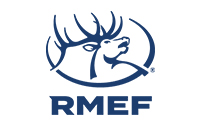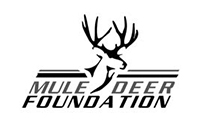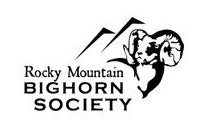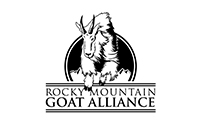Below we answer many of the common questions we get regarding our hunts and adventures in Colorado. If you are looking to answer questions about our adventures outside of Colorado, check out our Resource Page.
Check out our gear lists HERE.
Particularly when it comes to hunting and fishing trips, you have to consider your goals for the trip. This is where finding an outfitter that matches your philosophy for the trip is essential. Be honest with yourself.
Our hunts and fishing trips at FTWG are fair chase hunts in the remaining, wildest parts of North America. No roads, no vehicles, and the smallest modern conveniences come in on a mule’s back. You will be hunting/fishing in one of the most pristine environments, in the same manner the game has been taken for the past 300 years. The physical exertion, need to ride and pack mules and horses, and ability to bare inclement weather that goes with that experience is too much for some folks. For others, it makes the trip that much more special. Although we take fantastic trophies every year, there is no guarantee.
For more casual hunters there are game ranches, late season private ranch hunts from roads, and more laid back hunts across the West and South that you may be happier with. There is nothing wrong with these trips, but they are not what we provide.
As a policy we do not provide discounts outside of those provided to non-hunters and children younger than 13 on elk/deer hunts.
We spend money where some of our competitors don’t. We have more fulltime stock than our competitors, an established pack station on private property built and maintained for outfitting, and train staff to specifically serve our clients’ needs. These expenditures differentiate us from our competitors by allowing us to provide a more consistent, quality experience. Our prices reflect these costs and we refuse to lower our prices to meet the prices of outfitters that provide a lesser product.
We face ever rising costs of stock, feed, cooks, guides, liability insurance, workers comp, food, Forest Service permit fees, etc…
50% of the cost of your entire group’s trip is due with your contract. We do not reserve your date or camp until we have received a signed contract and the deposit. Deposits refunds are restricted, so read the contract and ask questions before signing.
The remaining cost of your hunt/trip/service is due on the specified date in your contract. If the entire payment has not been made for the group, the trip will not proceed. No exceptions.
Listed prices do not include license costs, taxidermy service, transportation of game to meat processing facility, transportation from airport or anything else not specifically written in the contract.
See Pricing for more details.
The Flat Tops Wilderness Area and the White River National Forest are public lands open to the general public. You may see non-FTWG hunters, fisherman or hikers when you are with us. Do not let this bother you. Our permitted area is over 240,000 acres of horse/foot only accessible land. The public rarely has the fortitude, know-how, equipment or trained stock that allows us to provide you with a quality experience and access the most game-rich areas. It is common for public hunting pressure to push game into areas only we know how to access via horse and mule.
In Colorado, the majority of elk and deer habitat is on public lands, particularly the summer and fall range.
Our base camp is located at 5097 Sweetwater Rd. Google maps and other online services suggest that our address in only half way up Sweetwater Rd. This is incorrect. We are at the end of the road, approx. 11.5 miles from Colorado River Rd. We are 1.5 miles past the Sweetwater Lake Resort. Our base camp pack station and facilities are to your left before steep switchbacks. There are signs and the switchbacks are very apparent.
We have 13 camps, from 2 miles to 16 miles from base camp. Our closest camps are a little over an hour horseback ride while our far camps are 5+ hours. We have done the analyses and there is very little correlation between distance and hunter success rate. Different camps are better during different parts of the season, and certain camps are better for deer while others are better for elk. If you have physical limitations with riding, let us know so we can put you in a camp with a shorter ride.
If you do not ride much, have the expectation of some soreness from riding. It will fade within 24 hours.
We require that all drop camps and guided camps have a working form of communication to base camp. Depending on the camp, this means satellite phones, Spot satellite beacons, cell phones, or InReaches. We have two landlines at the ranch and you will be given the outfitter’s cell phone number.
Regardless of the type of trip, pack trip, fishing, or hunting, being in the best shape possible will help you enjoy your trip more than anything else.
Spend your gear money on warm, comfortable clothing, good boots, a good day pack, and optics. You can skimp on other items, not these.
Hunters should bring a gun with a synthetic stock or one that they don’t mind a couple scratches on. Horseback rides and scabbards do a good job of protecting scopes and sites, but they can be hard on stocks.
Calibers .270 and above recommended with bullet weights of 150 to 180 grains. The most important thing is confidence and accuracy. Having a large caliber gun you are afraid of is suboptimal relative to using a lower caliber gun you have confidence with. Be prepared to shoot up to 400 yards. Site your gun in at 2 inches high at 100 yards. Do not expect to site you rifle in when you arrive.
Bows should have a draw weight of 50lbs or more. An experienced traditional shooter (recurve or longbow) with the self-control to keep shots under 30 yards can get away with a slightly lighter bow. Pack arrows in a hard container for pack-in. Be accurate at a minimum of 40 yards.
Muzzleloaders cannot have scopes. Minimum caliber for deer is .45, .50 for elk. Inline muzzleloaders are legal.
Practice judging distances. Our big open country and the size of our game make it tough to judge distances for many eastern hunters. Spend some time practicing.
Have a -15 sleeping bag or lower during the rifle hunting seasons. The main weather related tip is to have comfort with snow and think positive thoughts. The snow always eventually stops. It can drive some people crazy when it starts dumping.
If you do not ride much, have the expectation of some soreness from riding. It will fade within 24 hours. In our full service camps, where you are riding every day, by the third day you will be acclimated to riding. If you can get on a horse a couple times before your trip, you will be more comfortable.
Our operations are heavily dependent on horses and mules. We also hope that clients enjoy them as part of the unique experience we provide. We maintain a herd of year-round stock and make sure to match the client’s ability and comfort level with the animal they will be riding. Our horses and mules have hauled hundreds of guests and their gear into the Flat Tops. They know the area better than anyone and are in their natural element.
We do not allow people to ride with backpacks. Backpacks affect balance and will make people uncomfortable on longer rides. Things like lunch and water are packed where accessible on a mule or in the riding horses saddle bags. As a strict rule, we very much limit what goes on the riding stock. FTWG limits this to a couple pounds per rider. However, we believe in always having bare essential safety gear (way to start a fire and a knife) on your person at all times. Plan on having that in your jacket pocket or a small fanny pack type of bag. Everything else will be packed.
Rifles will go on riding stock. Muzzle down and towards the front, butt up. The scope is close to the horse and free of obstruction. Again, for comfort and safety no riding with them across your back. FTWG does this because time and again we have seen guests dismount and the gun follows momentum and clashes with a tree, person, etc… giving the scope a hell of a jarring. We have several scabbards that will even protect rifles with the extra-large scopes. If you think your gun may require one of those scabbards, please let us know on your information form.
Depending on group size and logistics, we will have you carry your bow on the ride or we will pack your bow on our pack stock in hard cases. Bring the thinnest hard-case you own. Make sure to consider that you may not have your case with you on the mountain, therefore your bow tools and extras need to be packed. Get a hard case for your arrows or a tube.
Hiking boots are fine in stirrups. Pac boots like Kenetrek and Schnee can be tight. If you have to wear them, let me FTWG staff know ahead of time so we can attempt to get you setup with oversized stirrups. It is best to plan on packing those types of boots and wearing your normal hiking boots or even sneakers while riding. Tightness in stirrups is unsafe.
If you need a rest to stretch, walk around and get off the horse after 3-4 hours, no problem. For people who don’t ride much, even our short rides can be brutal. We don’t walk and lead stock as it can be dangerous in terrain, safest spot is on top of the horse. We rest, than get on and go
- Comfort Inn (970) 328-7878
- Holiday Inn Express (970) 328-8088
- Best Western (800) 528-1234 (ask for Eagle, CO location)
- Hampton Inn (970) 947-9400
- Holiday Inn Express (970) 928-7800
- Best Western (970) 945-8535
- Ramada Inn (970) 945-2500
Altitude sickness is most common above 8,000 ft. elevations. All of our area is above this threshold so you need take several precautions. If you have the following symptoms, do not hesitate to tell a staff member:
Headache, nausea, loss of appetite, insomnia, strange dreams, lethargy, or vomiting.
If a symptom is mild, we may rest and get you hydrated. If the symptoms persist, you will be brought to lower elevation to recover. Altitude sickness can be dangerous if ignored.
There are a couple things you can do that will greatly decrease your chances of getting altitude sickness. Do not over exert yourself. As mentioned before, being in shape will make your hunt more comfortable and more successful. However, do not push yourself too hard once you are here. Overexertion is the easiest way to get altitude sickness. Like sea sickness, altitude sickness is best prevented. Once it starts, it can be hard to stop. Second, be careful how much alcohol you drink and drink a lot of water. Being dehydrated will cause altitude sickness. Third, come a day or two early to acclimate at a lower altitude before riding into camp.
In rare cases some people, especially women, can get swelling in their face, hands and feet at high altitudes. This is usually not a symptom of bigger issues and resolves within a few days of returning to lower altitude.
General dehydration can be a problem. Make sure to drink water more readily when you would at home. Our mountain air is dry and you will be exerting yourself.
Be careful with the sun, especially once we get snow. We get full sun roughly 300 days a year. When the sun bounces off the snow it can cause sunburn and even burn your eyes. Where eye protection and sun block on exposed skin.
Do not drink untreated water on your trip. Water must be treated with chemicals, pumped through a filter, or boiled before consumption. This includes water from high country springs. Giardia is a common in the area due to high country beavers. You most likely won’t know you have giardia until you return home from your trip and start crapping your pants. It takes a few days to catch up to you. It is an uncomfortable bug to catch that is totally avoidable.
The most dangerous health concern you can deal with in the back-country is hypothermia. If you are fishing, crossing streams, or otherwise exposed to moisture you are at a greater risk. Avoid wearing cotton clothing at all costs. Cotton loses its insulating properties when wet and actually keeps cold water against your body, depriving you of body heat. If a person is showing signs of hypothermia, slowly help them warm up and get them to the closest hospital.
Our staff is here to help you enjoy your trip, keep you safe and maximize your chances to accomplish a goal. In our industry it is all too often forgotten that the fishing trip, hunting trip, pack trip or other adventure is the guest’s experience, not the wrangler or guide’s personal expedition. Yes, safety, rules and regulations, etc… are set in stone. However, we train all of our staff to understand that the guest should have a lot of control over their trip. Be open with our staff about your preferences. If you feel the days are over exerting you, have a specific way you enjoy hunting/fishing, have an opinion on the food/menu or you feel uncomfortable with how an element of your trip is being approached, tell our staff directly. All of our staff will work with you to better the experience.
When it comes to hunting and fishing, everybody does it a little bit different. The upside of this is that our guides will almost certainly be able to teach you something and they will almost certainly have something to learn from you. Our happiest guests approach the guide/guest relationship as a learning experience. The number one criteria we use to hire guides at FTWG is experience hunting, fishing and/or packing in the exact area your trip will take place in. The Flat Tops Wilderness Area has a unique resident elk herd that is like no other elk herd in the country. Our guides’ domain knowledge of the animals and the geography exponentially increases the success of our guests and hopefully leaves each guest with knowledge they will use on future hunts.
If you have a particular preference on your guide, let us know when you book. For example, if you know you are going to want to hike 10 miles a day, we will put you with a different guide than we would if you prefer to sit on meadows or water. For bow hunters, let us know if you would prefer our guides do the calling or you would like to do the calling. Several of our guides are expert callers, but we also understand that some hunters enjoy calling elk as much as they do shooting them. If you do want to do your own calling, listen to our guide’s advice to better your chances of success. Poor calling can ruin your chances of bagging a trophy quicker than anything else.
Our guides love to hunt and fish more than anything else. If you come with a positive attitude, that passion will be harnessed. Your relationship with your guide will be more productive and more enjoyable.
If you harvest an animal early on your trip, we will pack the game out as soon as possible and hang it in our naturally cooled cabin specifically built for ageing. On the scheduled pack-out day, you must take your game meat with you and it is your responsibility from that point forward. For an additional fee, we can deliver your game to a local processor and have it frozen for your trip home.
For game processing and taxidermy, we recommend Action Taxidermy or Ron Hagen (970-524-6007) in Gypsum, Colorado.
Shipping meat is expensive so we recommend that you plan to have it frozen solid to be checked in as additional baggage. Guests who drive out to hunt, should make sure to bring large coolers with space for quarters and additional dry ice.
Shipping meat via FedEx runs $4-6 per pound.
We can also arrange to have meat donated on your behalf.
The best airport to fly into is in Eagle, CO. This airport is sometimes called the Vail airport and has daily flights. The second best airport to fly into is Grand Junction, CO, followed by Denver, CO. All three airports have car rental available. For any trip after September 20th, rent a 4×4 vehicle.
We can usually arrange pick-up and return from/to the Eagle airport for an additional fee. We will not coordinate transportation from other airports.
Let us know of your travel arrangements at least 30 days before your trip. We have to schedule staff and vehicles for transportation.
Please do not arrive late or excessively early to the pack station on the day of you pack-in. We work on tight deadlines and late arrivals by guests can cause major issues. If you will be arriving late, notify us as soon as possible. If you arrive late, you will be moved to the latest scheduled pack-out time so we do not lose time packing up other guests and their gear.
We cook traditional, hearty camp meals as a default. You are going to be burning a ton of calories so don’t feel bad about eating this high caloric awesomeness!
That being said, we work with our guests to adjust menus to their liking. If you have particular preferences, make sure to let us know well ahead of time so we can plan accordingly.
When FTWG packs in guests we assume one mule per guest in addition to their riding horse. We will not pack gear on riding horses with riders, due to safety issues (small items like cameras, etc… are fine).
This packing video will help you understand the horse/mule packing process and help you pack accordingly.
We will provide packing lists for all guests.
We get lots of questions on potentially walking into the area we work in.
Let us start out by saying it is physically possible to walk into our permitted area in the Flat Tops Wilderness Area. Possible is far from practical for most people and even farther from being enjoyable for most people. Our farthest camp is roughly 4,000 ft. elevation gain and a little over 15 miles in from a public access. If you are in good shape and have altitude lungs, it will take you around 5-6 hrs. because of the elevation gain, to walk to our far camp. It is difficult to have a comfortable and active trip when covering this distance just to get to the area. For more details on this top check out this blog article: DIY vs Outfitted Wilderness Hunts
If we are spot packing for your group, we recommend the entire group go in together on horseback. Splitting your group can cause your team problems, particularly in our remote area. When FTWG staff rides your group and mules in, things can always change based on weather, game we see on the ride, the public and your group’s preferences. That means we may drop the riders and gear in an area a half mile from where we had originally planned. If a separate member of your group is walking in, we lose this flexibility. The only consistent communication in the area is via Sat phone or InReach. Even if we stick to a set of coordinates, it can be problematic. Practical obstacles to getting to a specific point not on the trail system (timber, trails, geography, etc…) make getting to a specific point difficult at times. When we are spot packing, it is not our responsibility to coordinate non-riding hunters with their riding counterparts. We are just cargo haulers in this arrangement.
The short explanation is we will do our best to get in to pack-out game as soon as we can.
Game should be quartered with the bones left in the meat. It is easier to pack on mules that way. The game meat must be in a mule/horse accessible area away from downed timber and steep slopes. When packing game for hunters that are not staying in our camps, we only accept cash. Full payment must be paid before any game goes on mules in these situations.
The trick to getting game packed out of the mountains quickly is to call FTWG staff the minute you have something down. This is particularly important if you are more than 4-5 miles from our base camp. If it’s early enough in the day when we get the call, we might be able to come in and get game out the day it is harvested. We will most likely come in the next morning early. Even in archery season, the weather is cool enough at night to keep meat hanging without issue.
Based on hunting conditions, we may hunt mostly out of one camp or move quite a bit. When we move from a wall-tent camp to another wall-tent camp, sometimes we use horses and other times we backpack. Having gear capable of this on your end is up to you. From a guide’s standpoint, we want every option possible. We realize people have preferences, comfort level with true backpack hunting, and limitations on purchasing a bunch of new gear. Just keep in mind that having all options open is the best option.
BOOK YOUR TRIP NOW!
Hundreds of miles of horse trails and 17 wilderness camps in prime Elk, Mule Deer and Trout territory.
PROUD SUPPORTERS OF





Operating on the White River National Forest and the Flat Tops Wilderness under a special use permit from the US Forest Service. An Equal Opportunity Provider. Bonded and Insured.